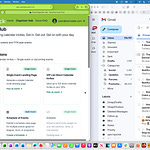What is the primary purpose of the "Send Event Invite" function within the Calendar Invite Server (CIS)?
The "Send Event Invite" function is central to the Calendar Invite Server (CIS) and is responsible for efficiently processing and dispatching calendar invitations to attendees. Its primary goals are to ensure that each invitee receives a correctly formatted iCal invitation and to track various event statistics, such as the number of invitations sent and RSVP responses.
Which AWS services are integral to the operation of the "Send Calendar Event Invite" function?
The "Send Event Invite" function leverages several key AWS services to perform its tasks. AWS Lambda is used for handling the core event invite processing logic. Amazon SES (Simple Email Service) is the service through which the actual calendar invites are sent to attendees. Amazon SQS (Simple Queue Service) is utilized to manage and queue event invite requests, ensuring reliable delivery. Finally, Amazon DynamoDB is used for persistent storage of attendee records and event statistics.
Can you describe the step-by-step process of how an event invite is processed from trigger to completion?
The event invite processing flow begins when an SQS event notification triggers the function. Upon trigger, the system extracts the invite data from the SQS message and performs a check to see if the attendee has already received an invite to prevent duplicates. If no prior invite is found, a properly formatted iCal invitation is generated and sent via Amazon SES. After successfully sending the invite, the system updates event records by storing the invitee's details in DynamoDB and updating the overall invite statistics for the event. Finally, a cleanup step involves deleting the successfully processed messages from SQS.
How does the system prevent duplicate event invitations from being sent to the same attendee?
The system actively prevents duplicate event invitations through a specific check during the processing flow. Before sending an invite, the attendee_has_not_been_sent function checks DynamoDB to verify if the attendee has already been invited for that particular event. If a record indicates that an invite has already been sent, the system will not send a duplicate invitation, ensuring attendees do not receive redundant emails.
What kind of data is stored in DynamoDB related to event invites and attendees?
DynamoDB is used to store two main types of records for the "Send Event Invite" function. First, it holds "Attendee Records," which include details such as a primary key (pk: event#) and a sort key (sk: attendee#), along with attendee information, their RSVP status, and their history related to the event. Second, DynamoDB stores "Event Statistics," which track key metrics like the number of invites sent, RSVP responses, and other relevant data points for the event.
What environmental variables are critical for configuring the "Send Event Invite" function?
Several environmental variables are crucial for the proper configuration and operation of the "Send Event Invite" function. These include REGION, which specifies the AWS Region where the function will execute; DYNAMODB_TABLE, which is the name of the DynamoDB table used for data storage; SENDER, which defines the email address used to send the invitations; RSVP_EMAIL, the email address designated for collecting RSVP responses; and SQS_URL, the URL of the SQS queue responsible for processing event invite requests.
How does the system handle errors, particularly those related to duplicate invitations and email sending failures?
The system incorporates error-handling mechanisms to maintain stability and reliability. For duplicate invites, as mentioned, a check is performed to prevent sending a second invite if one has already been dispatched. In the case of email sending failures (e.g., issues with Amazon SES), these failures are logged for troubleshooting purposes. Significantly, such shortcomings do not halt the overall execution of the function, allowing other invites to be processed. Additionally, all exceptions are logged to facilitate debugging and identify root causes.
What is the significance of the lambda_handler and process_request_from functions in the context of event invite processing?
The lambda_handler function serves as the entry point for the AWS Lambda execution. Its primary role is to iterate through each record received in the SQS event. For every record (representing an individual invite request), it calls the process_request_from function. The process_request_from function then handles the specific logic for each invitation, which includes extracting invitee details, checking for existing invites, sending the invitation if necessary, and finally deleting the processed message from SQS to prevent retries. These two functions work in tandem to manage the batch processing and individual handling of event invite requests.
AI Vid












